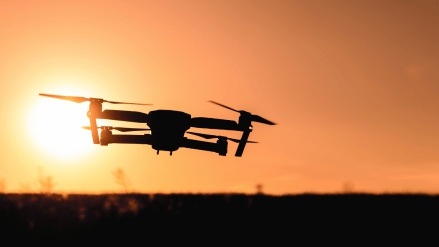Drone technology startups are witnessing rapid growth, marked by soaring revenues, deeper market penetration, and expanding technological capabilities. Over the past six months, this momentum has been particularly noticeable, on the back of favourable policy frameworks, increasing demand across sectors, and a maturing innovation ecosystem. One of the key drivers has been the widening scope of drone use cases, from agriculture and infrastructure inspection to defence and disaster response.
While Operation Sindoor — India’s strikes on terrorist infrastructure in Pakistan in response to the Pahalgam terrorist attack — brought national attention to drone deployment in tactical military operations, founders said that the upward trajectory began well before that. Many point to the Drone Rules of 2021 as a catalytic moment that, combined with growing investment interest and supportive government policies, created the environment for recent success.
For instance, Garuda Aerospace, a prominent name in drone manufacturing, has projected revenue of Rs 117.57 crore for FY25 and is eyeing Rs 250 crore in FY26. It also expects to close FY25 with a net profit of Rs 23.69 crore. The startup’s client portfolio now spans government agencies, agricultural businesses, defence bodies, and infrastructure companies. In the past six months, Garuda has enhanced its AI & machine learning capabilities to support advanced data analytics and predictive maintenance, which are vital for applications like precision agriculture and industrial inspections.
In April, Garuda secured Rs 100 crore in Series B funding, which is being used to scale production and bolster research and development of defence-grade drones. “This investment is also fuelling the establishment of a new design centre and expansion of our IP (intellectual property) portfolio, which includes over 20 patents,” said Agnishwar Jayaprakash, founder and CEO of Garuda Aerospace.
Another fast-rising player, IG Drones, saw its revenue grow by 330% in FY25 to `22.4 crore. The startup ramped up manufacturing fivefold to produce 1,000 drones and plans to more than double that in FY26. CEO Bodhisattwa Sanghapriya confirmed the firm is targeting Rs 100 crore in revenue this financial year. Alongside scaling operations, IG Drones is planning a global foray and is in the midst of raising Series A funding.
The company said that during Operation Sindoor, its drones were instrumental in real-time surveillance and precision strikes, demonstrating their tactical utility. The firm’s current order book stands at over Rs 20 crore, with smart city projects and industrial inspections among its key revenue drivers.
Chennai-based Zuppa, a deeptech company focusing on cyber-secure autonomous drone systems, recently raised Rs 5 crore from Four Pursuits Ventures. The startup has seen a tenfold jump in active customer engagements and is targeting a 20-to-30 times increase in revenue in FY26. According to data from Tracxn, Indian drone startups have raised $39 million across 13 funding rounds in 2025, underscoring growing investor confidence. The country is now home to over 450 drone tech startups.
While e-commerce deliveries and defence remain critical sectors, new business opportunities are emerging in construction, surveying, mapping, and public infrastructure monitoring. Experts believe the next big wave will come from drone component manufacturing and OEM (original equipment manufacturing) segments.
Leading firm ideaForge has been active, partnering with Resonia Limited to deploy advanced drone tech in power transmission infrastructure and investing in the US-based Vantage Robotics, which specialises in nano and micro unmanned aerial vehicle (UAVs). The aim is to scale Vantage’s capabilities for the North American market.
Meanwhile, Hyderabad-based Marut Drones is building scale through agri-tech and training initiatives. It has launched four new drone remote pilot training organisations (RPTOs) and claims a 3.2x growth in the last two quarters of FY25. It plans to set up 15 more RPTOs in partnership with state governments and agriculture universities and has developed the Skyswift Training Drone, a low-cost, DGCA-compliant training unit for institutions.
